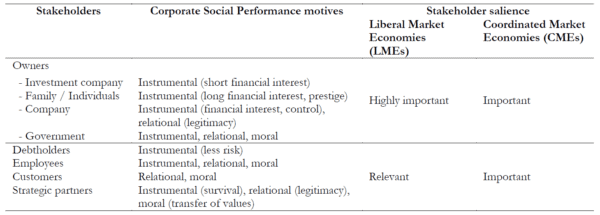Governance & Leadership
Corporate governance decisions, like CEO dismissal, can disrupt organizations. As a result, the board of directors treads with caution while making such decisions. Previous research suggests that boards rely on…
Read MoreBy J Katherine Bahr CEOs have long been criticized for their tendency toward the dark triad of personality traits: narcissism, psychopathy and Machiavellianism. Ample research shows that dark triad traits endanger…
Read MoreHigh inter-unit competition worsens the situation as narcissistic executives are concerned with their sense of superiority and uniqueness; however, high environmental complexity or dynamism can combat such negative effects as…
Read MoreRead this post and learn: Three reasons for top management team (TMT) structure development: instrumental, institutional, and instructionalist The interplay of formal and informal structures: competing vs. complementary dynamics It…
Read Moreby Steve Boivie, Mike Withers, Scott Graffin, and Kevin Corley A new study in the Strategic Management Journal coauthored by Steve Boivie, Mike Withers, Scott Graffin, and Kevin Corley, helps…
Read Moreoriginally published by SMS Journals Press Releases Few topics in organization studies have received as much attention from scholars as CEO compensation. Two key questions are why some CEOs are…
Read MoreBy Paul P. Momtaz (momtaz@ucla.edu) based on https://onlinelibrary.wiley.com/doi/10.1002/smj.3235 Why are CEOs coached for many hours in preparation for important public announcements, such as their presentations at annual meetings? The extensive preparation…
Read Moreby Kurt Desender and Mircea Epure This year marks the 50th anniversary of Milton Friedman’s influential New York Times piece, which argued that corporations should pursue value maximization while other…
Read Moreby Kisha Lashley Stigma is a strange thing—the very attributes that can result in stigma for some, may not be nearly as damaging to others. A new study entitled “How…
Read More